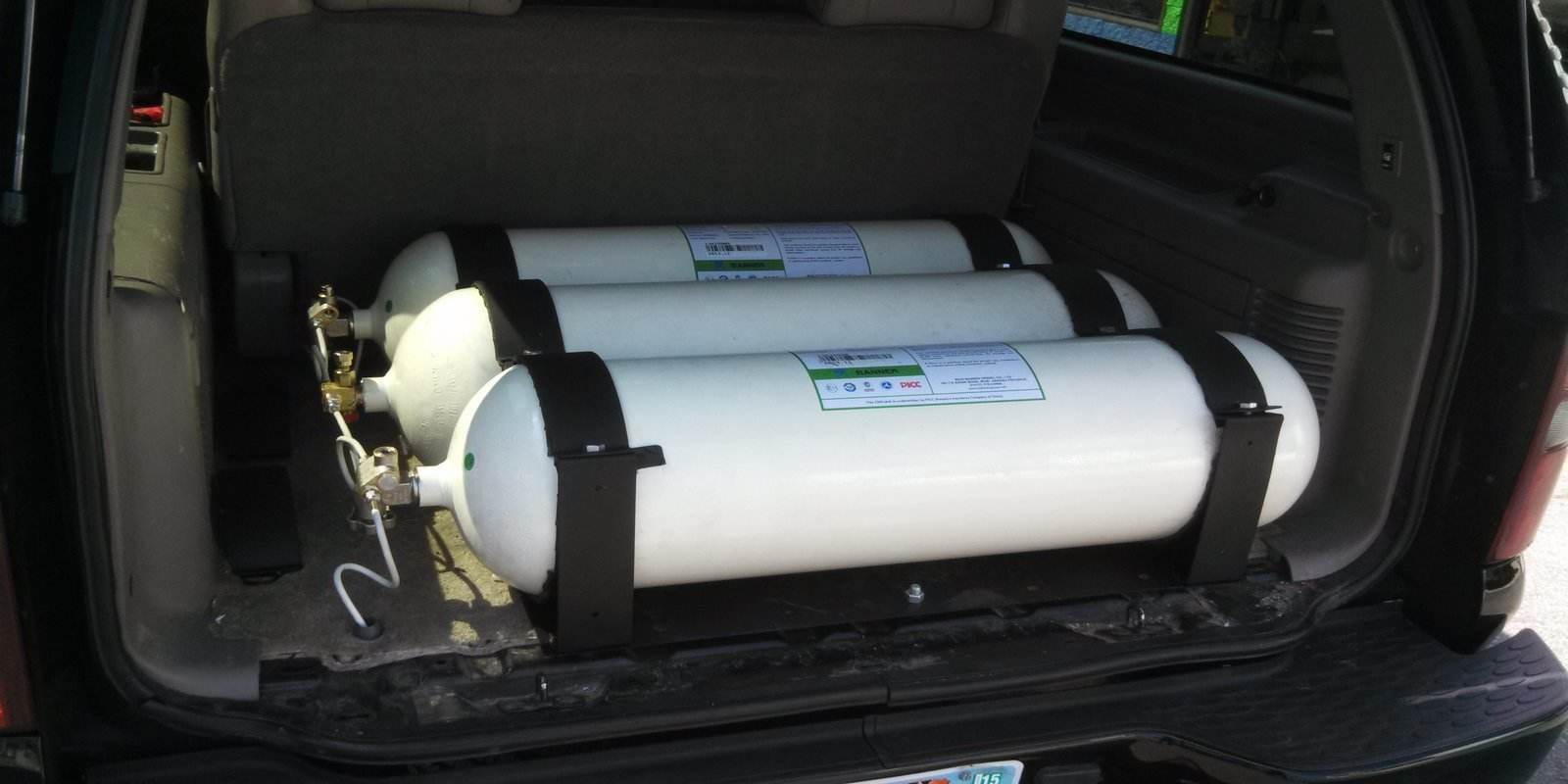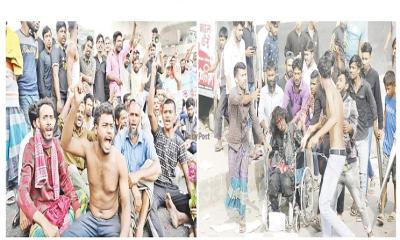- 53800 cylinders have been retested
- CNG cylinders filled with gas at a pressure of 3200 pounds per square inch
- 5.5 lakh cylinders in 5 lakh vehicles
- Only 14 re-test centers in country
No concession given when unfit vehicles plying on road. Without fitness, car sent to dumping
- Munibur Rahman, Additional Commissioner (Traffic), DMP
-Accidents occur due to lack of proper storage and use of substandard and expired cylinders
Md Farooq Hossain, Chief Inspector, Department of Explosives
Staff Reporter
Most vehicles in the capital run on gas cylinders. Gas cylinders are being used in buses, trucks, private cars, CNG auto rickshaws, pickup vans, and mainly to save fuel. Some of those have a tenure of 4 years and some have a tenure of 5 years. Experts said that these expired cylinders have become a death trap for passengers due to their use in transportation. These cylinders have become a serious hazard due to substandard and non-time re-testing. The regulatory body is blaming the BRTA (Bangladesh Road Transport Authority). Again, using cylinders cannot be prevented as the matter is not within the law.
According to calculations by the Rupantarita Prakritik Gas Company Limited (RPGCL), there are about 5 lakh CNG vehicles in the country. Among them, at least 70 percent of the vehicles use the same cylinder for more than five years. These vehicles are plying the roads and highways without re-examination. It is the responsibility of the government to check whether the gas cylinders are in order or not. We don't know which one has a gas cylinder and which one doesn't. We don't even try to find out. Rakib, a private jobholder, rides on the Leguna from Azimpur to Gulistan to go to his office 6 days a week. But every day, he fears whether he will be able to reach the workplace safely or not. Another such worker is Ashraful Islam. He goes to Motijheel by bus from Dhanmondi to his office. Both of them shared their opinion with The Daily Post. They said we have no way to avoid public transport. However, they do not know whether the gas cylinders in these public transports are safe or not. For this, always remain in fear of whether they can return safely.
Former Director (Operation) of Fire Service, Major (Retd) AKM Shakil Newaz told the media that there are many rules and regulations regarding the use of gas cylinders. We don't follow those rules. For example, many institutions are looking into the issues of using gas cylinders. One of those organizations is the Department of Explosives. They are mainly responsible for the approval and supervision of cylinder manufacturing and usability.
He said, that in the case of gas export, transportation, and maintenance, experiments must be done in the lab. But we don't have a lab. There is a need for coordination of all agencies required due to research or supervision. To run on it, a quick code number must be used. Through which everyone will know the code and can take immediate action.'
Shakil Nawaz also said, gas cylinders added to vehicles legally or illegally are now a serious threat to life. But there is no such initiative of the government's regulatory body to prevent it.
According to experts, CNG cylinders are filled with gas at a pressure of 3200 pounds per square inch. As a result, if the cylinder is expired, it creates a serious explosion in the vehicle. It is very important to maintain the correct quality of gas cylinders to prevent this terrible explosion. Despite the instructions, retesting of cylinders older than five years in CNG vehicles is not being undertaken. These dangerous vehicles are plying the road every day with expired cylinders. The regulatory body concerned about the safety of gas cylinders to avoid frequent accidents is the Transformed Natural Gas Company Limited (RPGCL).
According to RPGCL and media sources, there are 5 lakh 50 thousand cylinders, in 5 lakh vehicles in the country. Most of these are expired, but most of the owners or drivers do not come for re-examination. And all the cylinders used in the truck are illegal. As per the rules, every cylinder is supposed to be tested after 5 years but it is not done. In this case, accidents can be avoided if BRTA (Bangladesh Road Transport Authority) takes proper measures and takes care of fitness. According to sources, there are only 13 to 14 re-examination centers in the country. If re-examination is made mandatory at the time of taking fitness from BRTA, the risk will be greatly reduced.
According to BRTA's calculations, the number of vehicles registered in the country till January this year is 38 lakh. Among them, 13 lakh 84 thousand 192 are in the capital. However, a large part of the vehicles in the country, including the capital, are CNG-powered. But even though there is a rule to test cylinder fitness every five years, it is not being done.
According to a report from the Energy Department, out of 4 lakh gas cylinders in the country, only 53 thousand 800 cylinders have been retested. This is only 14 percent of the total cylinders. There are 180 public and private CNG conversion workshops in the country. CNG-powered vehicles have been in circulation in the country for the past 15 years.
Dr. Maksud Helali, a professor at Bangladesh University of Engineering & Technology (BUET) told the media, that drivers and users do not know that their cars have become dangerous bombs due to the use of old cylinders. He said, that after 2018, LPG gas was being used in every house in the city from the village. People have increased its use without knowing. Users do not have the basic knowledge about this gas. These gas cylinders have increased in homes, and on footpaths. If we do not know the correct rules, a terrible explosion may occur sometime.
ZH






